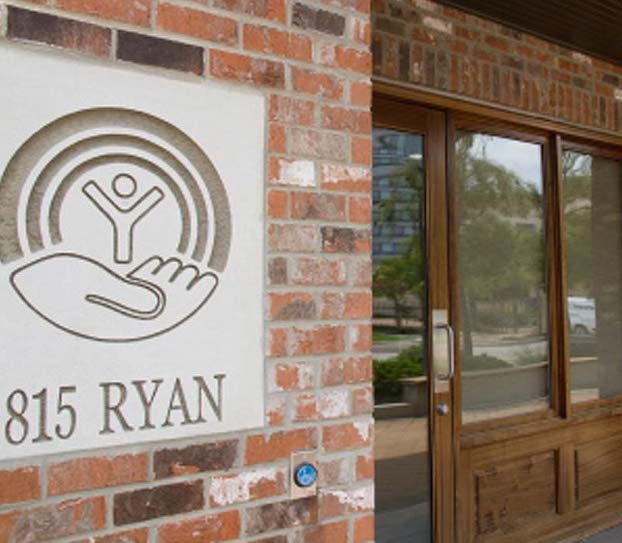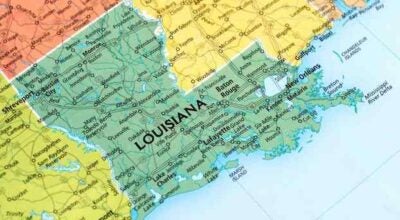Jim Beam column:Insurance may be hard to find
Published 7:05 am Saturday, September 9, 2023

- Five major insurance companies are planning to reduce coverage in areas affected by hurricanes, fires and other events and Southwest Louisiana is one of the target zones.(Photo courtesy of monsenso.com)
Longtime critics of the Louisiana insurance industry say the actions of five major companies destroy the myth that too many lawsuits are the reason for high insurance premiums. Five large U.S. property insurers have told regulators they are going to quit writing policies in some areas and plan to increase deductibles and premiums in others.
Why are they doing it? The Washington Post that broke the news about the companies’ plans said those insurers blame extreme weather events like hurricanes, wind, and hail.
Ben Riggs, executive director of Real Reform Louisiana, said the changes aren’t taking place because of litigation or the regulatory environment that are routinely blamed for high premiums by insurance commissioners, industry-friendly lawmakers, and lobbyists.
More frequent, more powerful storms are the root cause, Riggs said. “Yet Commissioner (Jim) Donelon and industry-friendly lawmakers continue to point the finger at storm victims for increased costs, diminished coverage, and a lack of availability, falsely claiming that policyholders holding their insurer accountable in court is the cause of our insurance costs,” he said.
The Post said the five companies making drastic coverage changes are Allstate, American Family, Nationwide, Erie Insurance Group, and Berkshire Hathaway (Geico). They want to cut out damage caused by hurricanes, wind, and hail from policies underwriting property along coastlines and wildfire country, according to a voluntary survey conducted by the National Association of Insurance Commissioners.
Allstate said its climate risk mitigation strategy would include “limiting new business … in areas most exposed to hurricanes” and “implementing tropical cyclone and/or wind/hail deductibles or exclusions where appropriate.”
Aon, an international risk management firm, said U.S. insurers have disbursed $295.8 billion in natural disaster claims over the past three years. That is a record for a three-year period, according to the American Property Casualty Insurance Association.
Natural catastrophes in the first six months of 2023 in the United States caused $40 billion in insured losses, the third costliest first-half on record, Aon found.
Insurance providers are also more willing to drop existing policies in some locales as they become more vulnerable to natural disasters. Most home insurance coverages are annual terms, except for Louisiana, so providers are not bound to them for more than one year.
Tim Temple, the state’s next insurance commissioner, said he would tackle laws that make Louisiana an outlier compared to other states. A Louisiana rule, for example, bars insurers from dropping policyholders who have held a policy for three years. Another state rule requires insurers to get prior approval from the Department of Insurance before changing a policy.
Riggs has other ideas. “Any proposal that strips Louisiana property owners of their rights and further stacks the deck in favor of big insurance companies not only fails to meet the moment but will further exacerbate the five-alarm insurance crisis Louisiana families are suffering,” he told The Advocate.
Joe Richard of Metairie, in a letter to the newspaper, said, “My wife and I are in our late 70s, and we drive less than 4,000 miles a year, and our cost is over $1,600 per year. Our homeowners insurance costs $6,000 per year. So, we are now paying $7,600 this year on insurance.”
David Sampson, president of the American Property Casualty Insurance Association, talked about the other side of the story. “There’s no place to hide from these severe natural disasters. They’re happening all over the country and so insurers are having to relook at their risk concentration.”
The Post said experts say many of the policy changes may be unfavorable to certain consumers but are important for the survival of the wider insurance market.
Consumer advocates told a U.S. Senate committee Thursday the solution is better state regulation and more federal involvement to slow rate increases, according to The Advocate. Supporters of insurers said the goal should be to ratchet back unnecessary regulation and make it harder for homeowners to sue companies when dissatisfied with claims.
Temple, the state’s next insurance commissioner, said, “We do need to have a department of insurance that’s more receptive to inviting companies that want to do business in Louisiana. You still have a job to hold them accountable. … But you can become a more friendly department to the insurance industry.”
A special legislative session is needed, Temple said, to pass new laws that he hopes will attract new insurance companies to the state. Those laws will only work if there is a proper balance between what property owners need and what insurance companies want.
Those five companies have made their moves. The next move is up to the Legislature.





